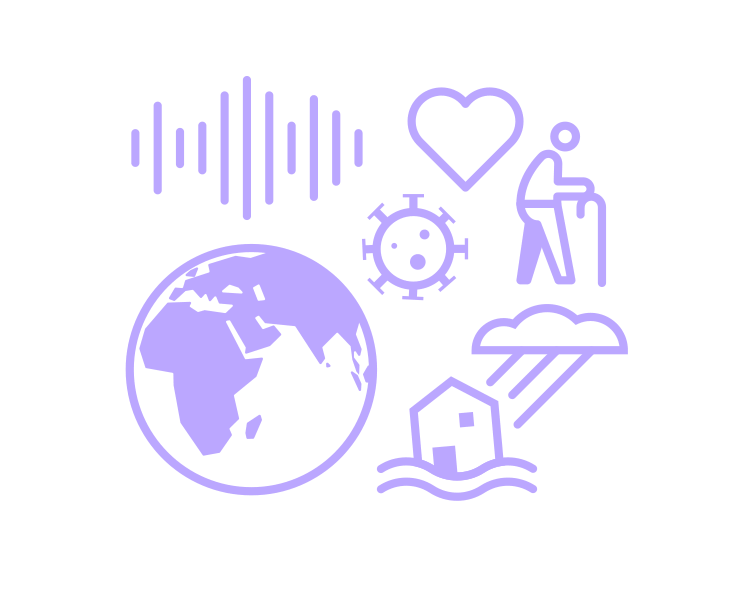Research Areas
GHP conducts research to make a difference in several key areas. The links below contain descriptions of these research areas, the key staff involved in researching them, and a list of recent publications.
-
- Air Pollution and Health
- Harmful substances from both man-made (e.g., industrial facilities, motor vehicles, and household solid fuels) and natural sources (e.g., forest fires and desert dust) pollute the air humans breathe and inevitably bring deleterious effects on human health. We conduct studies (e.g., time series, case crossover, and cohort) to assess the effects of the various air pollution exposures (i.e., particulate matter and different chemical species) to health outcomes (e.g., cardiorespiratory diseases). The findings of these studies are important to evaluate and improve governments’ policies in reducing air pollution and the current standards being implemented.
Learn more
-
- Climate Change and Human Health
- Climate change is expected to bring major shifts in weather patterns and can lead to more extreme events like heat waves, drought, and flooding. These climate-related changes affect various health outcomes that can lead to poorer quality of life and push national health systems beyond their limits. To quantify health impacts of climate change, we perform analysis of global level datasets using advanced statistical modeling tools in collaboration with various universities and research institutions internationally. These outputs are useful for the planning of adaptation and mitigation efforts by international institutions and national governments.
Learn more
-
- Extreme Events and Severe Environmental Exposures
- Extreme events, such as the COVID-19 global pandemic and the Japan’s triple disasters in 2011 (earthquake, tsunami, and Fukushima nuclear crisis), can expose various vulnerabilities and limitations of our existing infrastructures and healthcare systems. These massive events tend to perturb various health outcomes that they deviate from their normal patterns. We measure the influence of these events on health using advanced quasi-experimental methods in order to elicit evidence for policy- and decision-makers to facilitate effective response to such changes or similar extreme events in the future.
Learn more
-
- Infectious Diseases in Changing Environment
- Natural and anthropogenic disturbances in the environment bring about major ecological changes that can promote the transmission of pathogens. Some of the major infectious diseases that are becoming prominent due to environmental change are vector-borne diseases (e.g., dengue, malaria) and waterborne diseases (e.g., rotavirus, cholera, leptospirosis). We implement advanced methodological tools to measure the impact of environmental changes on the incidence of infectious diseases retrospectively or prospectively for the future. Generating such scientific evidence is crucial to support changes necessary to improve the healthcare system and disease control strategies.
Learn more
-
- Urban Health
- Cities are major economic hubs and much of the population in the future is expected to inhabit urban areas rather than rural areas. Rapid development and growing socioeconomic pressures in cities may lead to a greater vulnerability to environmental changes that can negatively affect the health of its populace. We conduct epidemiological studies to investigate the links between urban health and environmental changes (e.g., urban heat island and air pollution), and to identify the possible moderating effects of individual and socioeconomic factors that can modify these relationships.
Learn more
